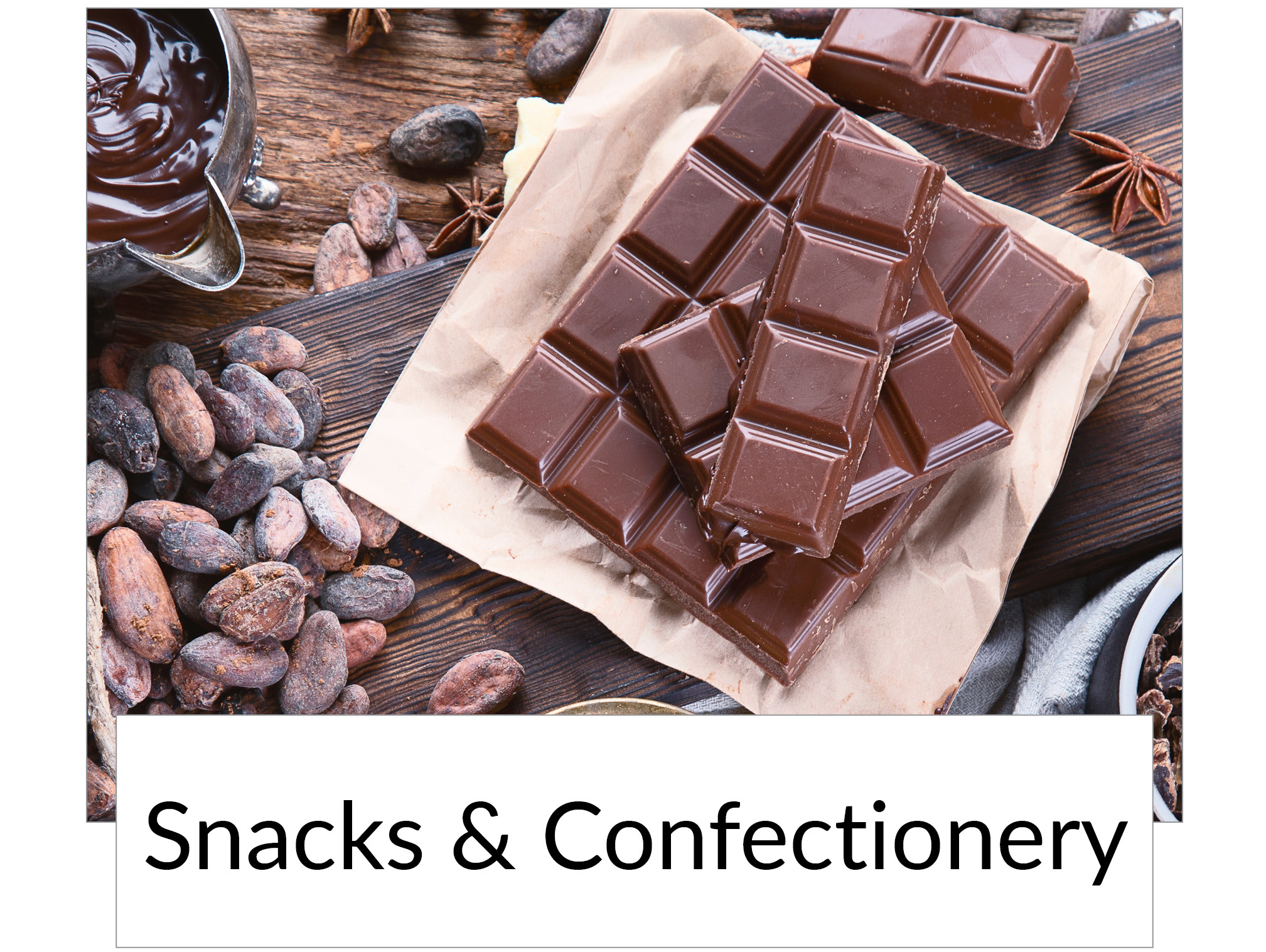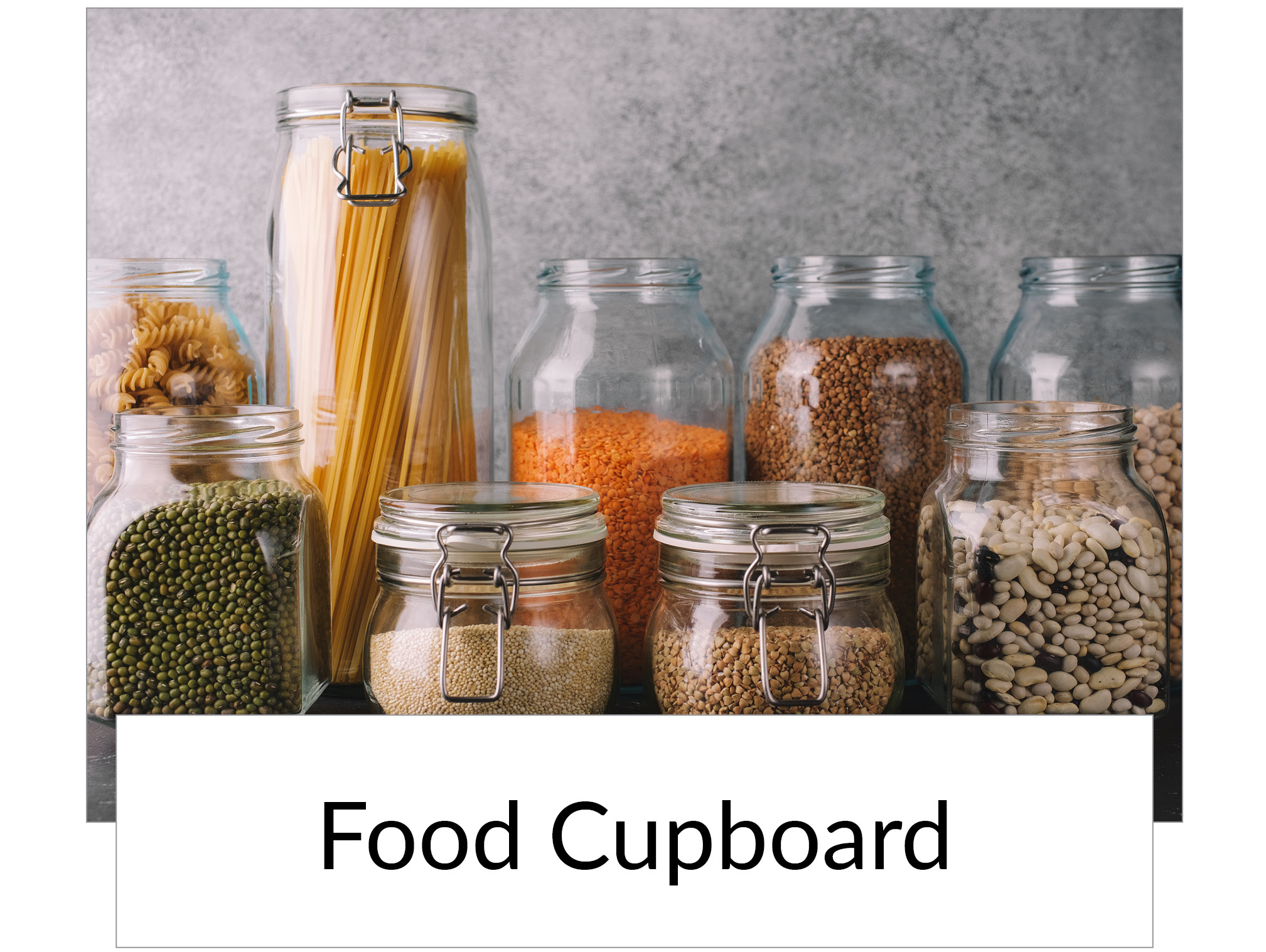
Due to increasing energy prices and taxes, households across the UK will be feeling the pinch this year. As utility bills and the cost of the weekly shop increase, people will be looking for ways to reduce costs. Here, Real Foods takes a look at some top money-saving cooking tips. Meal planning, cooking from scratch, buying in bulk and eating seasonally can all help to save money, so it’s time to reclaim your kitchen and help reduce your costs.
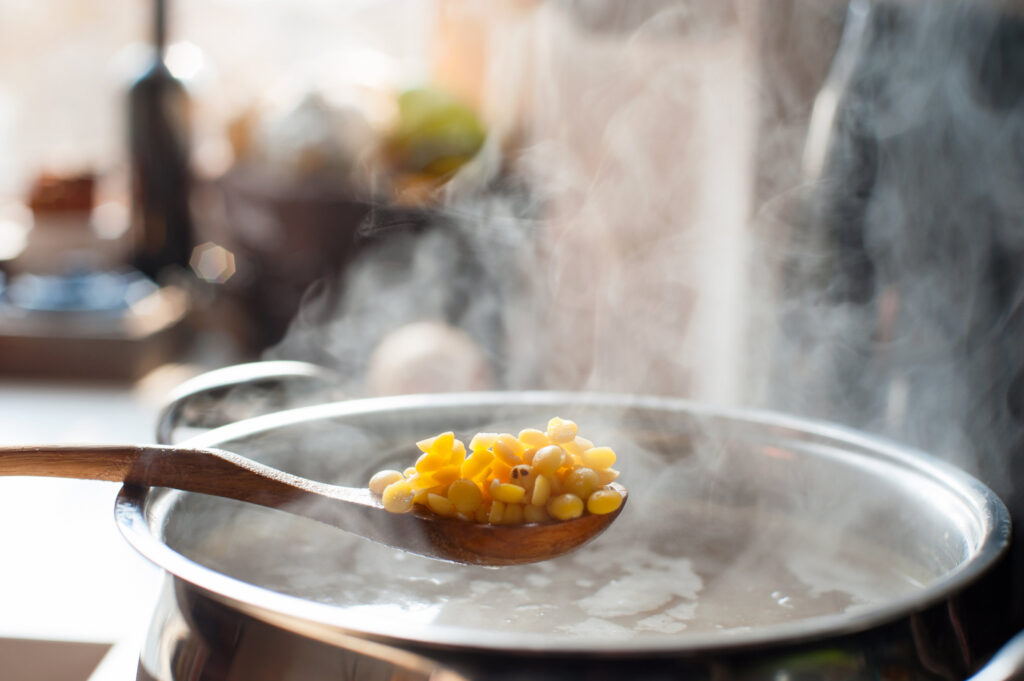
Cooking from scratch
There are so many benefits to cooking from scratch. Not only can you save money, but you can use healthier ingredients and keep a check on portion sizes.
Firstly, you’ll want to make sure that you have all the right equipment. Invest in a decent set of knives as well as a knife sharpener and a chopping board.
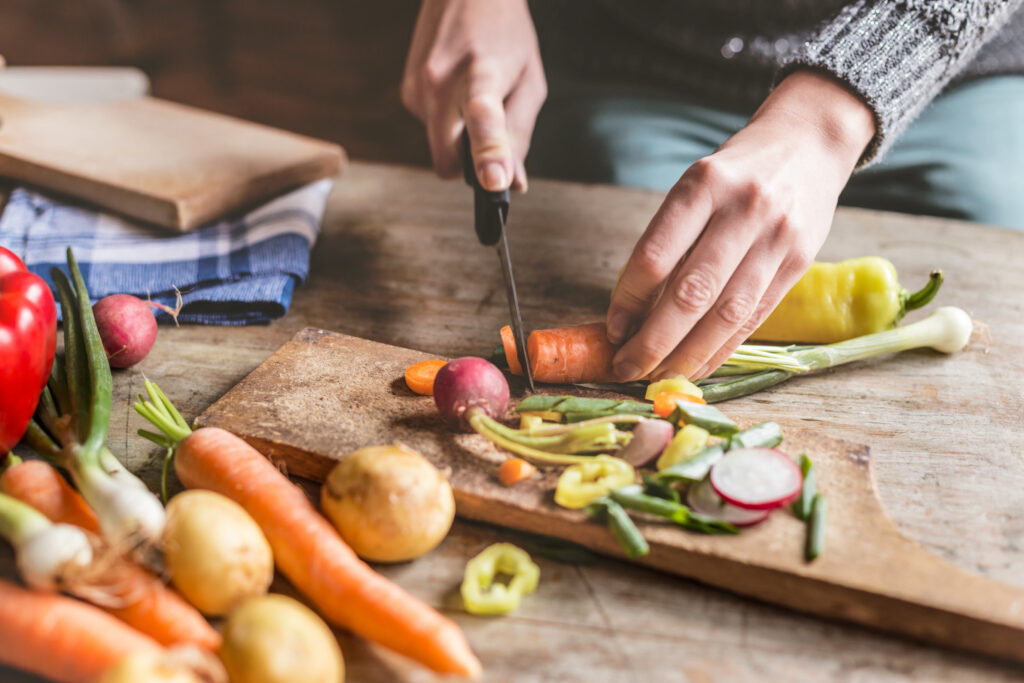
Make sure you have a frying pan and a set of saucepans. A stock pot will be useful if you’re planning to batch cook. Glass baking dishes are ideal for casseroles and baking trays are good for roasting vegetables and toasting nuts. A set of measuring scales is essential and you might also want to get a set of measuring cups and measuring spoons.
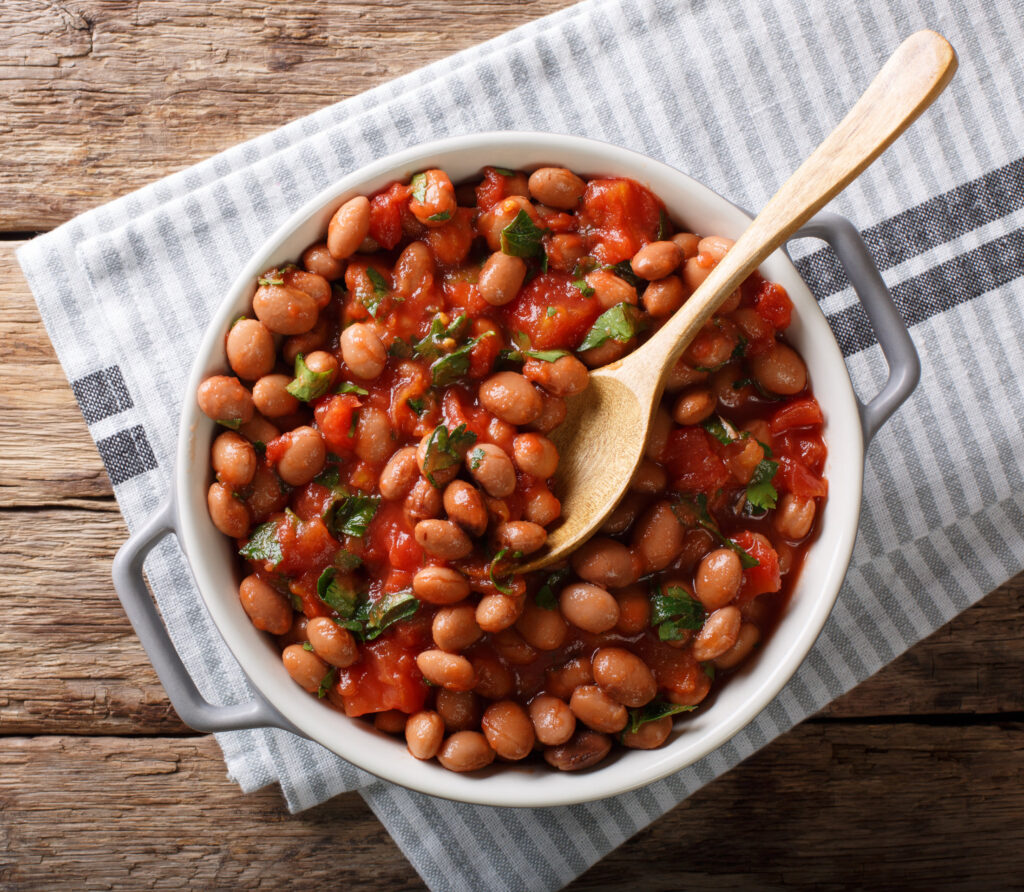
Other items you will probably want to buy include a whisk, a peeler, a colander, a can opener and some wooden spoons. A good quality food processor will also help to save time chopping, slicing, shredding, mixing and kneading.
Once you have all your equipment, you’ll need to stock up on some kitchen cupboard staples. This includes things like good quality olive oil, a range of herbs and spices, plus salt and pepper. Tinned tomatoes can be used in lots of recipes such as pasta sauce, veggie Bolognese or chilli. Grains such as brown rice, quinoa, amaranth and barley are good accompaniments to these dishes. Tinned and dried pulses also form the basis of many good veggie and vegan meals, and they’re a good source of protein.
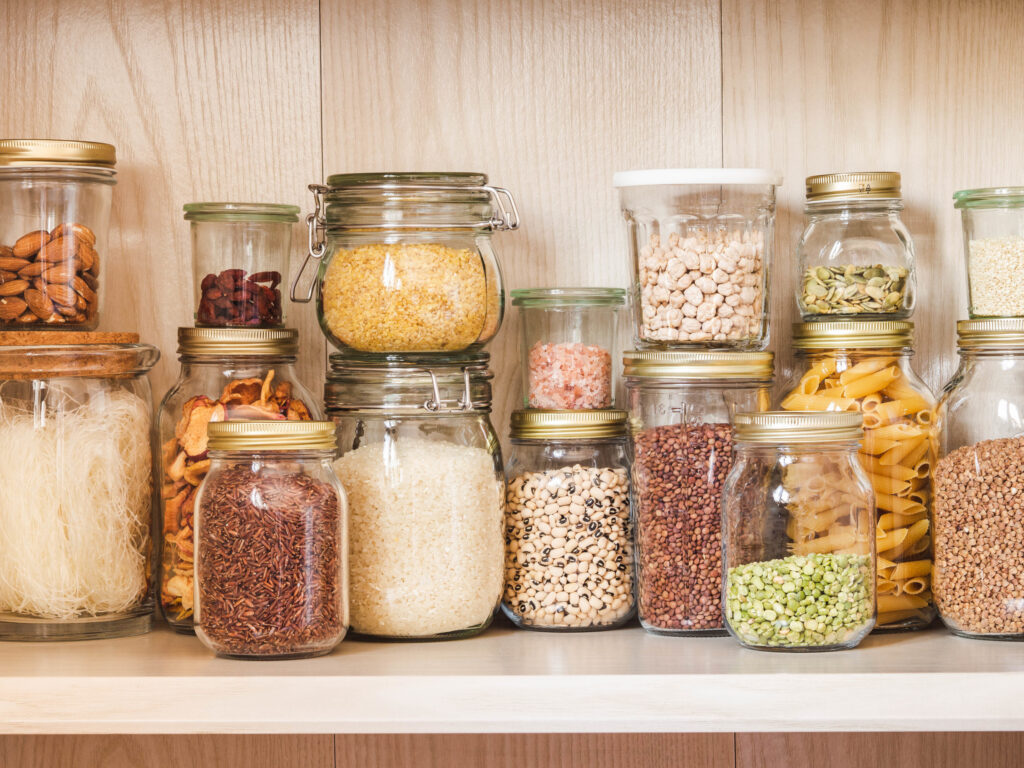
Baking from scratch
Baking from scratch is another great money-saving cooking exercise. In the UK, it costs around £1 to buy a loaf of bread, whereas a homemade loaf will cost you less than 50p.
Some good kitchen cupboard staples for baking include sugar, salt, baking soda, baking powder, eggs, butter, flour and yeast. If you are vegan or following a free from diet you’ll want to stock up on some gluten-free flours, dairy-free butter and egg replacers.
A really easy recipe to start off with is banana bread, which was a big favourite during lockdown. You simply blend the ingredients together, pour into a loaf tin and bake. It makes use of bananas that might otherwise have gone uneaten and reduces food waste.
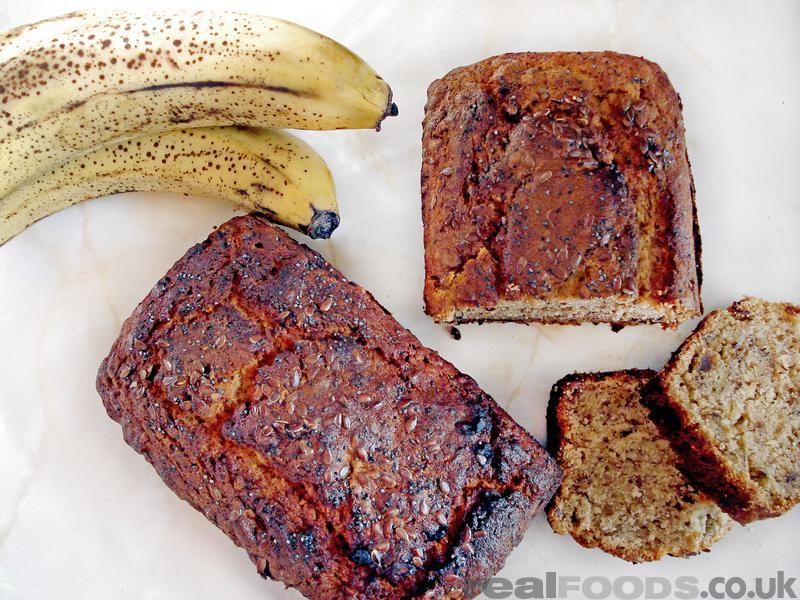
This seeded spelt bread is also easy to make but requires a bit of kneading. Once you’ve made a few baked goodies you might want to try making another lockdown favourite: sourdough bread. To make sourdough you need a fermented starter of water and flour. Once made, the starter needs to be fed and maintained with additional flour and water. It can then be used to bake lots of delicious sourdough bread at very little cost!
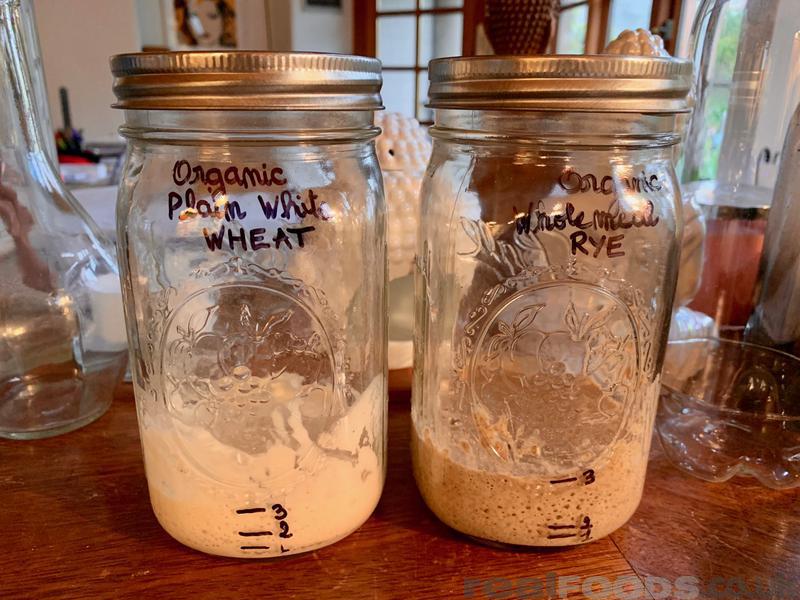
Meal planning
Each year in the UK, we throw away roughly 9.5 million tonnes of food. This is estimated to cost the average household £496 a year. By planning your meals in advance you will not only save money but will also save on food waste. Work out which meals you will be having for the week ahead and draw up a shopping list.
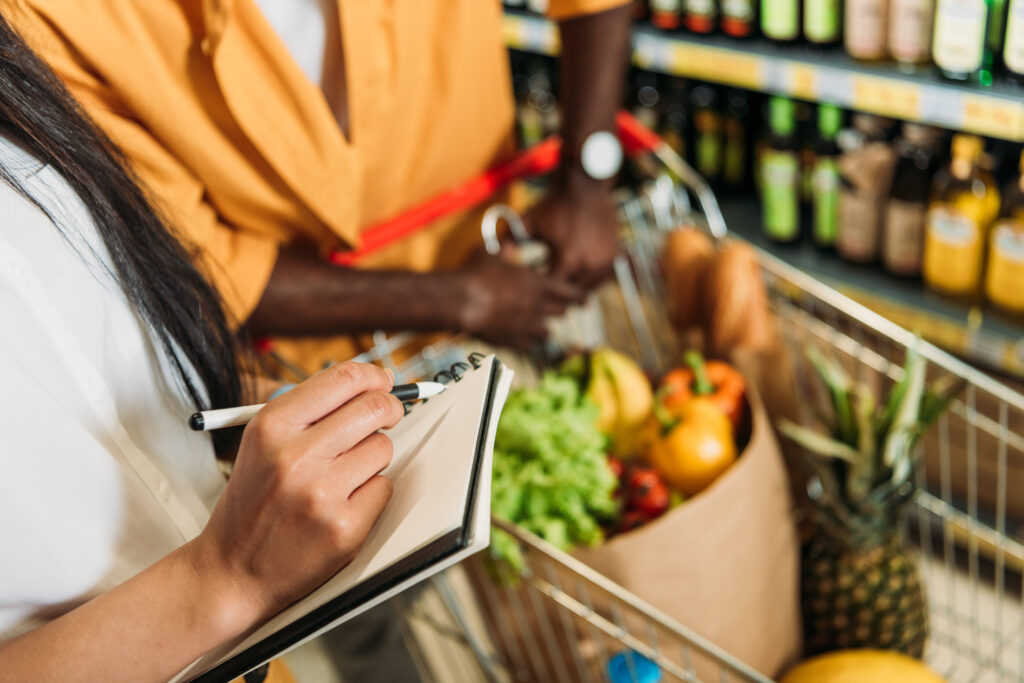
If you need some recipe inspiration, then look no further than the Real Foods website! We have plenty of low cost, tasty meal ideas. When you’re choosing recipes, it helps to pick ones that use similar ingredients. Look at what you already have in your kitchen cupboards and go for recipes that use these items. This will help to save money and reduce waste.
Search for recipes that you can make in a batch, divide into portions and put in the freezer. Then, you just have to warm it up when you want to eat it. And if there’s any leftovers, take them to work for lunch the next day. Sunday afternoon is the perfect time to do your batch cooking and meal prep. Spend an hour or so prepping the ingredients you need for specific meals to save time during the week.
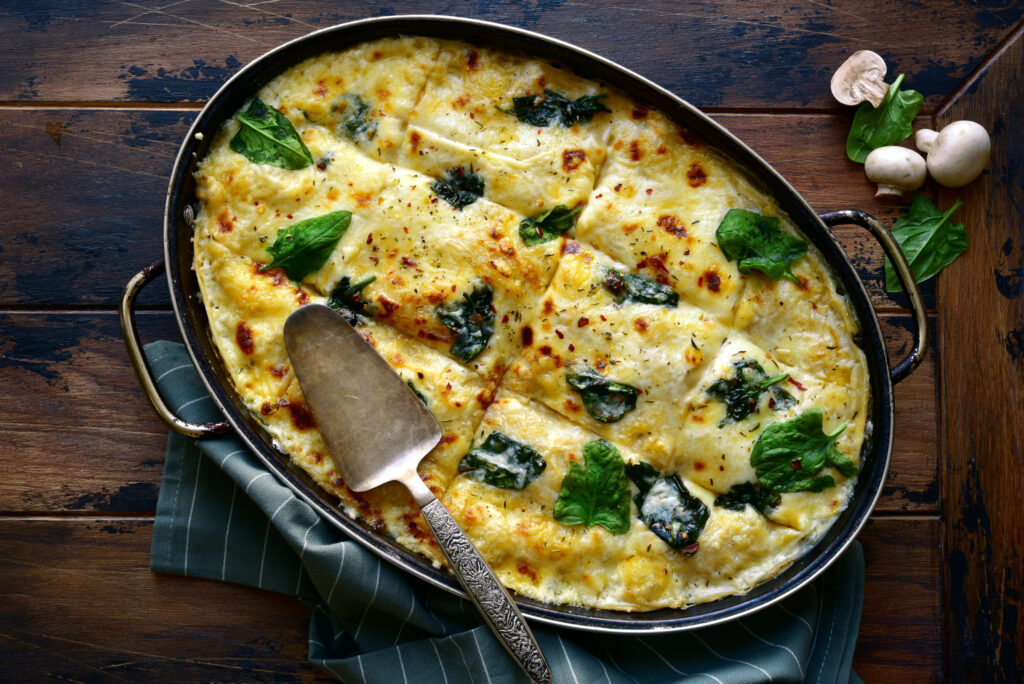
Buying in bulk
Another money-saving cooking tip is to buy in bulk. This includes foods such as nuts and seeds, grains, cereals and pulses, which can be used in so many recipes. Grains such as quinoa are brilliant for adding bulk to soups and stews and are a good source of veggie protein.
Oats are another versatile ingredient that can be used in a variety of breakfast dishes. Dried fruits make a great snack but they can be high in sugar. They keep well in cool, dry places so buy them in bulk but eat them in moderation!
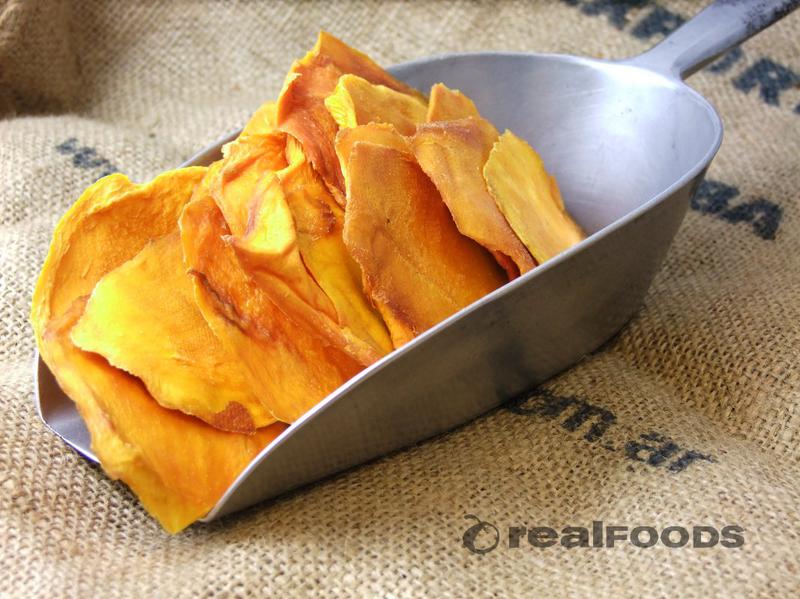
The more you buy of these items the less you pay per kilo, so why not club together with friends and family? You can buy household cleaning products in bulk too. For example, washing up liquid, laundry liquid and fabric conditioner can all be bought in five-litre containers. Buying in bulk not only saves money but also removes the need for unnecessary packaging and single-use plastic. So it’s good for the planet as well as your pocket!
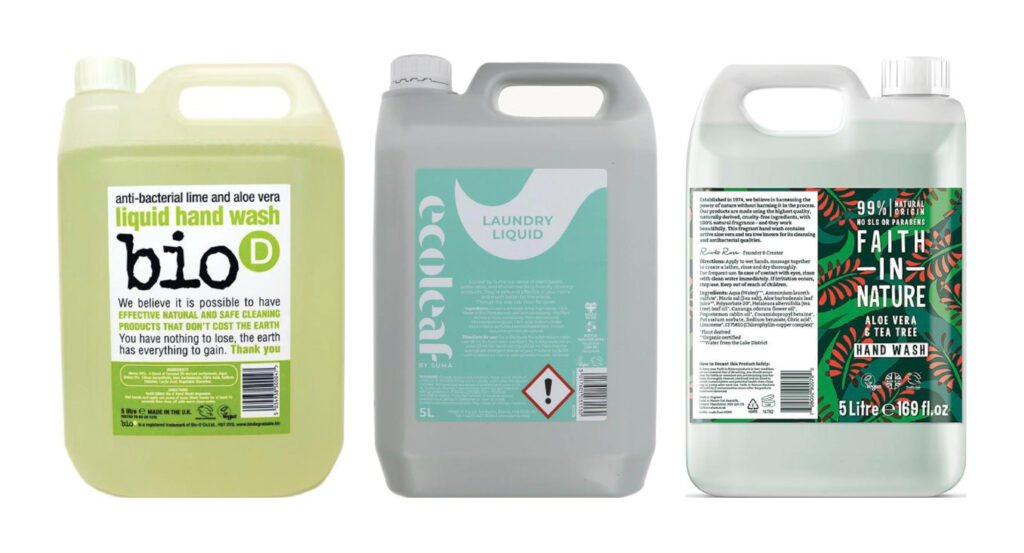
Preserving your pennies
Making jam and marmalade is a great way to preserve fruit, while pickling and fermenting is a good way of preserving vegetables. You can pickle almost any veg, but it must be fresh and unblemished so that its nutritional content is preserved.
Here is a super easy recipe for pickled onions. All you need is some fine sea salt and some raw apple cider vinegar. Here’s another simple recipe for pickled fermented cucumbers, which is very cheap to make at home. Fermented foods like these are high in beneficial bacteria so will help to support your gut flora.
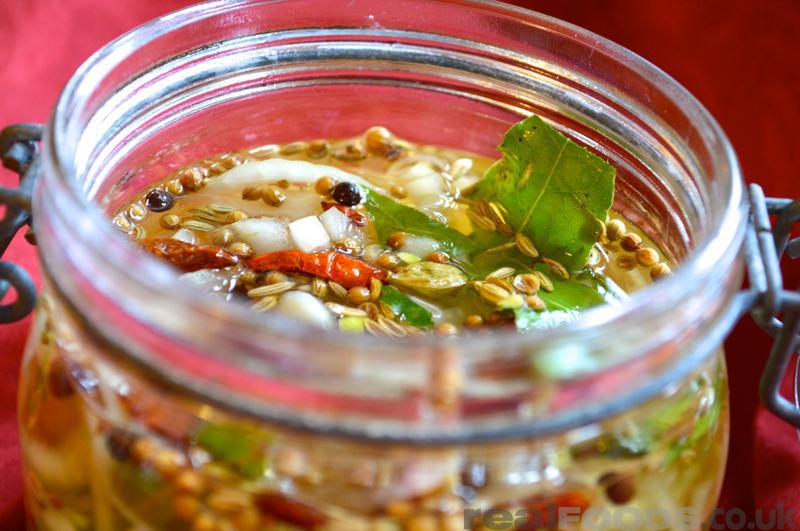
This marmalade recipe requires 1kg of oranges and 1kg of sugar and will fill three to six jam jars. It’s a great way of preserving fruit, but is a little heavy on the sugar so eat it in moderation.
Jam-making and pickling can be very rewarding activities. You never know, these money-saving cooking ideas might turn into a hobby!
Savour the organic seasons
Eating seasonal fruit and vegetables not only helps with money-saving cooking but it reduces your carbon footprint. Seasonal produce is cheaper because you are buying it when it is naturally ripe and ready for harvest. It’s much more expensive when it’s been imported from other countries. Seasonal fruits and vegetables are fresher, tastier and container higher amounts of nutrients. Produce loses its nutritional value the longer it is stored or while it is being transported.
Here is a guide to seasonal fruits and vegetables, based on information from the European Food Information Council (EUFIC)
Spring
Vegetables: Asparagus, bell peppers, broccoli, brussels sprouts, cabbage, carrots, cauliflowers, lamb’s lettuce, leeks, lettuce, new potatoes, pak choi, parsnips, peas, potatoes, purple sprouting broccoli, radicchio, radishes, rhubarb, rocket, salsify, samphire, spinach, spring onions, swede, sweet potatoes, watercress, white asparagus
Fruits: Apricots, bramley apples, grapefruits, nectarines, pomegranates.
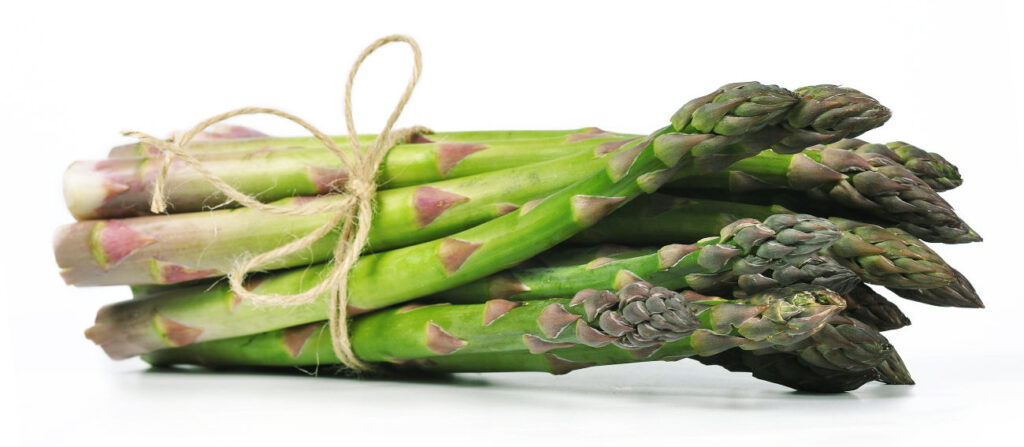
Summer
Vegetables: Artichokes, asparagus, aubergines, beetroots, bell peppers, broad beans, broccoli, cabbage, carrots, cavolo nero, celery, chard, chillies, courgettes, cucumbers, fennel, garlic, haricot beans, kohlrabi, lamb’s lettuce, lettuce, mangetout, marrow, mushrooms, new potatoes, onions, pak choi, peas, potatoes, radicchio, radishes, rhubarb, rocket, runner beans, samphire, spinach, spring onions, sweetcorn, tomatoes, turnips, watercress
Fruits: Bilberries, blackberries, blackcurrants, blueberries, cherries, crab apples, elderberries, gooseberries, greengages, loganberries, plums, raspberries, redcurrants, strawberries, watermelons.
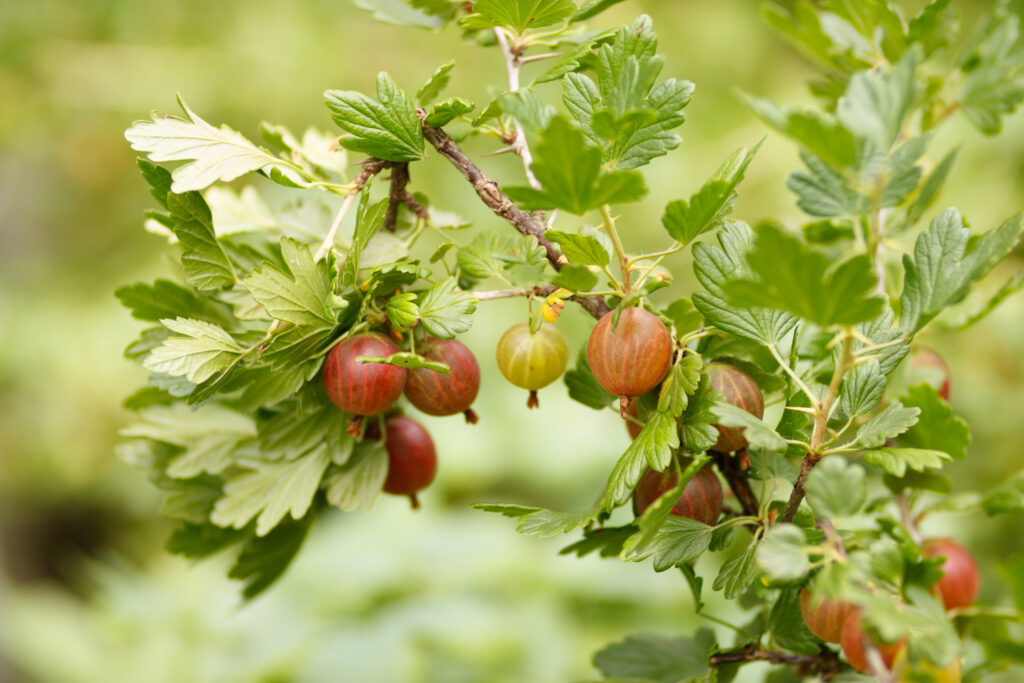
Autumn
Vegetables: Artichokes, aubergines, beetroots, bell peppers, broccoli, brussels sprouts, butternut squash, cabbage, carrots, cauliflowers, cavolo nero, celeriac, celery, chard, chicory, chillies, courgettes, cucumbers, fennel, garlic, haricot beans, horseradish, Jerusalem artichokes, kale, kohlrabi, lamb’s lettuce, leeks, lettuce, mangetout, marrow, mushrooms, onions, pak choi, parsnips, peas, potatoes, pumpkins, radicchio, radishes, rocket, runner beans, salsify, shallots, spinach, spring onions, swede, sweetcorn, sweet potatoes, tomatoes, truffles (black and white), turnips, watercress, winter squash.
Fruits: Apples, bilberries, blackberries, cranberries, elderberries, gooseberries, medlar, pears, plums, pomegranates, quince, raspberries, redcurrants, strawberries, watermelon.
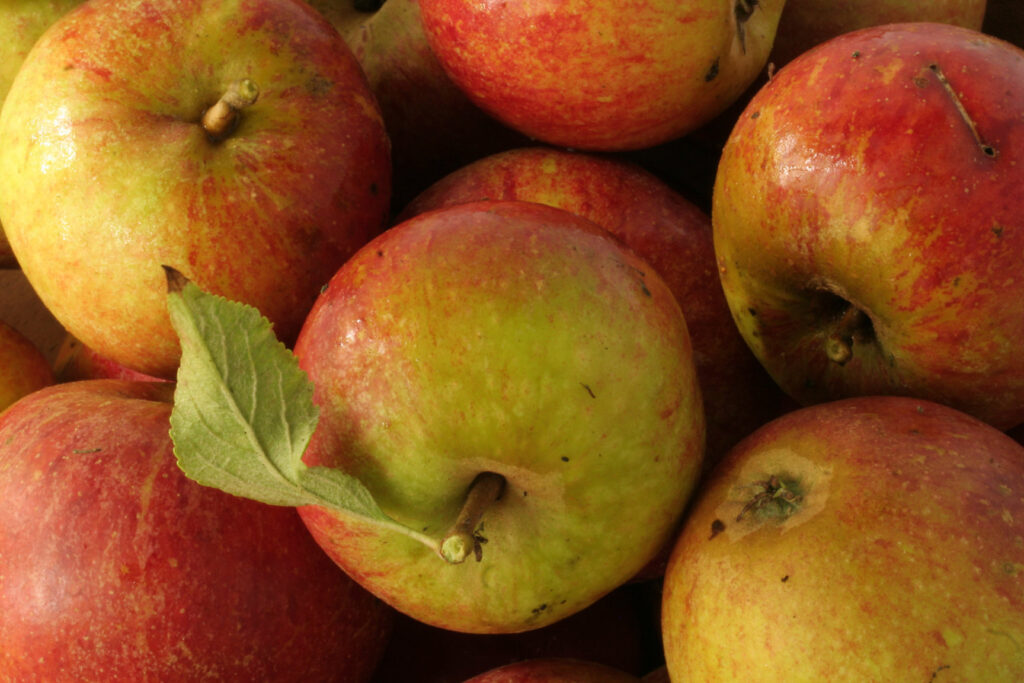
Winter
Vegetables: Beetroots, brussels sprouts, cabbage, cauliflowers, celeriac, celery, chicory, horseradish, Jerusalem artichokes, kale, kohlrabi, leeks, lettuce, mushrooms, pak choi, parsnips, potatoes, pumpkins, purple sprouting broccoli, radicchio, rhubarb, salsify, shallots, swede, sweet potato, truffles (black), turnips, Winter Squash.
Fruit: Apples, pears
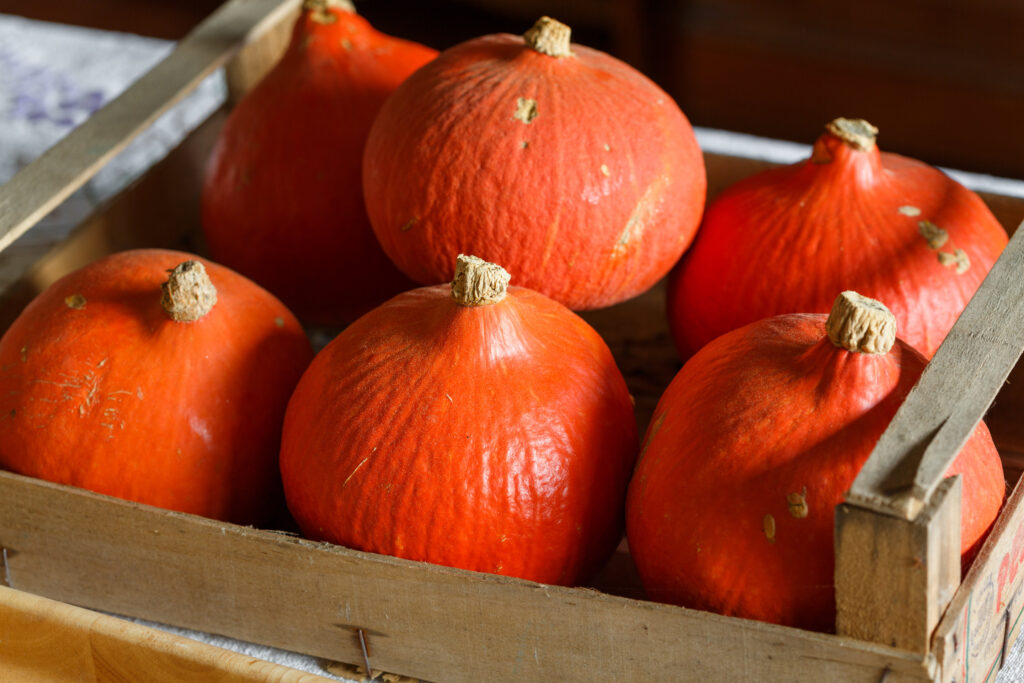
Canny cooking
Lastly, here are some money-saving cooking recipes to help you get started:
Breakfast can be a bargain
Oats are a versatile and low-cost breakfast choice. You can use them in porridge with various toppings. You can also use them to make overnight oats and as a base for muesli. Remember to buy your ingredients in bulk to save costs!

Being avaricious can be an appetiser
Make salads using seasonal vegetables and with bulk-bought grains. Cook up some soup using seasonal veg, which you can freeze into portions.
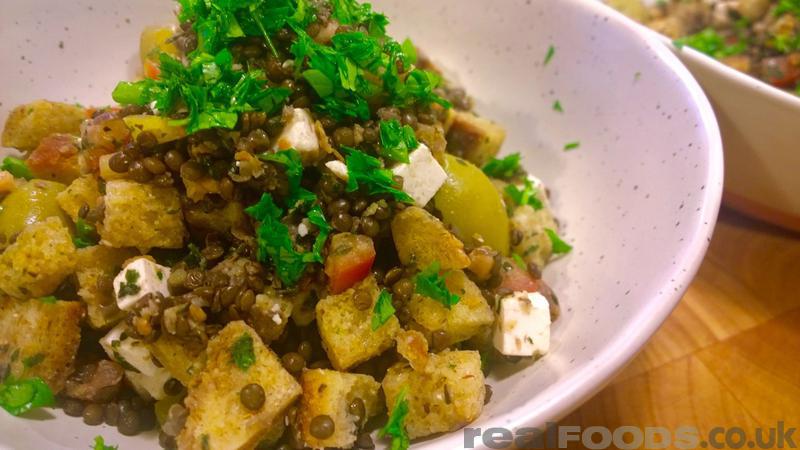
Save money in the main
Seasonal vegetables stuffed with grains make for a low-cost and filling main meal. Veggie stews and chillies are ideal for batch cooking and are comforting winter dishes. Make a batch of veggie burgers and freeze them for a quick mid-week dinner.
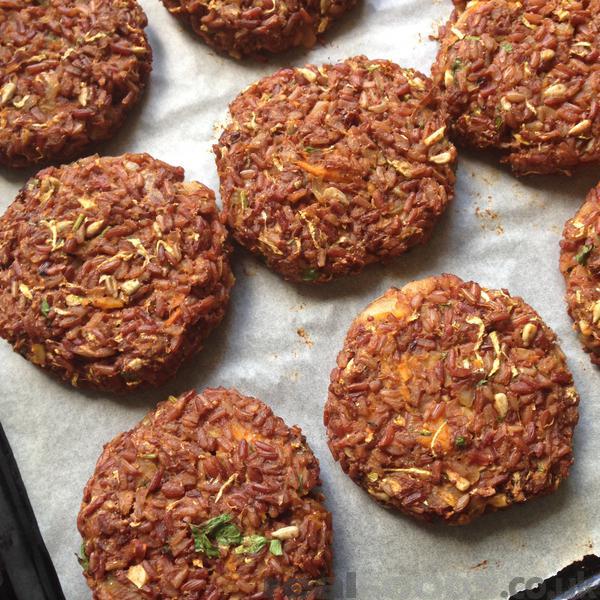
Prudence is in the pudding
You can easily whip up a low-cost seasonal summer dessert using some frozen berries and natural yoghurt. During autumn and winter, baked fruit makes for a deliciously warming pudding.

So, as you can see, money-saving cooking could help you to save a few pennies as we all start to feel the pinch.
For more savings at Real Foods make sure you shop from our wide range of special offers every month. You’ll find hundreds of very popular products in these categories at much reduced prices.
Real Foods Special Offers
